The other day, I went to Sungai Congkak Recreational Forest, a dipterocarp rainforest part of the great Titiwangsa mountain range just a stone’s throw east of Kuala Lumpur. Here, I stumbled upon a bucket list find: a mushroom resembling the famed Durian fruit in Malaysia.
Depending on spores, this peculiar organism could either be a Chamonixia sp. or the delightfully dubbed Durianella echinulata (of which the Genus contains the single species, described in 2008).
The fungus was originally collected in a jungle in Kemaman, Terengganu (Malaysia), on 24 June 1932, where it grew on soil buried in leaves at a river's edge.
I found this one growing on Shorea trees (ectomycorrhizal) near the river bank.
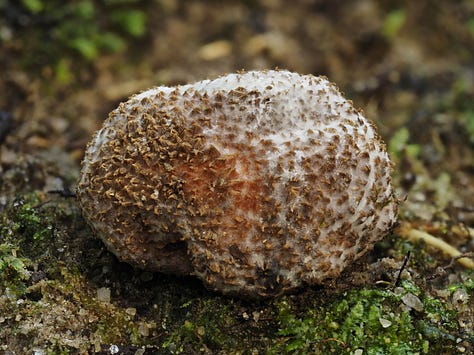


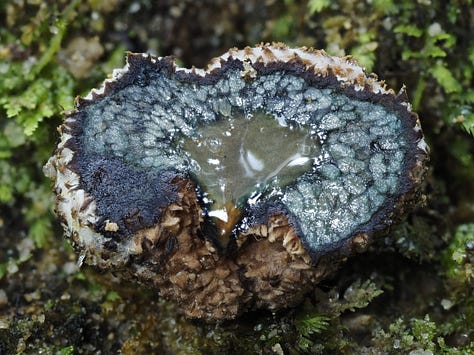

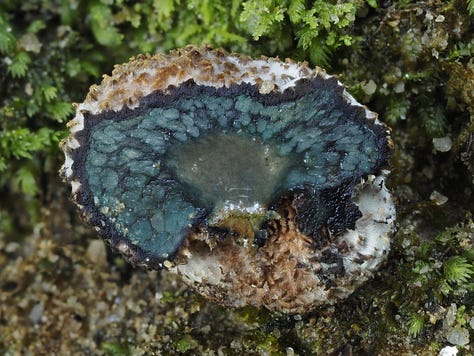
The blue-staining phenomenon hints at a connection to the Boletales order, yet its fruit body structure leans towards an affinity with Pisolithus and reminds me of the spiky-ness of Pisolithus aurantioscabrosus that I found in Penang last year.
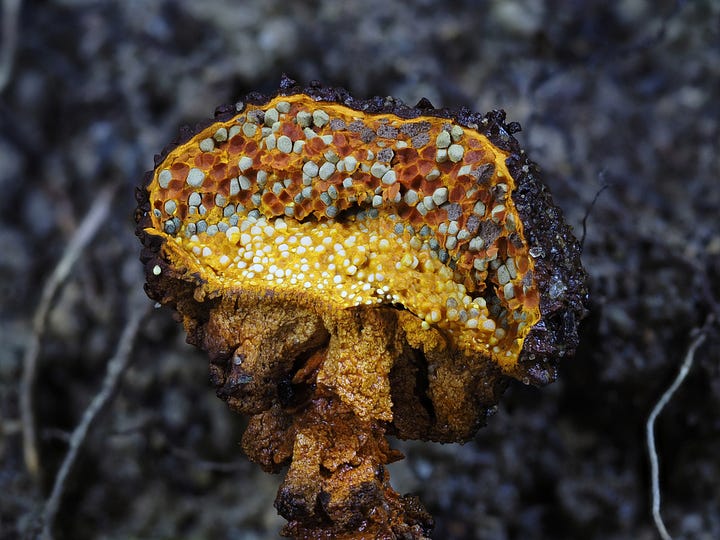
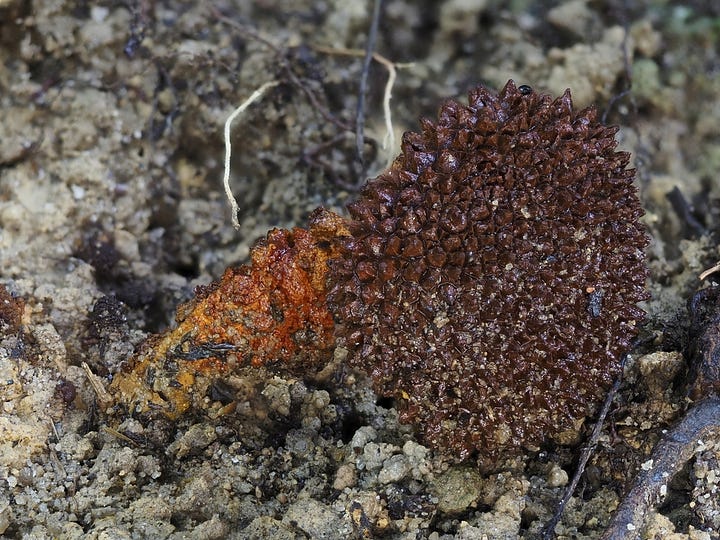
Below: you can see a more solid black interior with dark blue coloring with the fresh one.

The day's find, not only marked a check on my bucket list but also a deepened appreciation for the intricate, often surprising, tapestry of nature where the lines between species blur, creating delightful echoes across the diverse biological spectrum.






